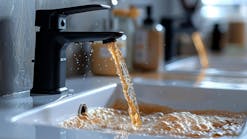A new report found that surface water quality and groundwater throughout Cape Cod has degraded for the third year in a row.
The Association to Preserve Cape Cod's annual State of the Waters report was released Jan. 3, which tracks the water quality of the Cape's freshwater ponds, marine estuaries, and public drinking water.
According to the report, most of the Cape’s coastal embayments and many freshwater ponds and lakes are suffering from water pollution. The report indicates that the Cape’s waters suffer from pollution due to: nutrient pollution, harmful bacteria, harmful algal and cyanobacteria blooms, mercury pollution, emerging contaminants and more.
Per- and polyfluoralkyl substances (PFAS) have been found in Cape Cod water supplies, groundwater, and ponds. Most homes and buildings on the Cape use septic systems.
Additionally, a total of 20 public water supplies were graded. The report found that:
- 13 public water supplies on the Cape continued to have excellent water quality;
- Six suppliers were graded as having good water quality; and
- One supplier received a grade of poor due to violations of two drinking water standards (E. coli and total coliform bacteria), as well as several violations at different locations which required a town to issue a boil water order.
Consumer tap water quality was not evaluated. The report also found that mercury contamination of surface water is of serious concern, considering 32 ponds and lakes on the Cape have fish consumption advisories due to high levels of mercury.
According to the report, in next year’s report, APCC will include PFAS as a regulated contaminant of concern. PFAS in public water supply wells was not graded because state and federal drinking water regulations requiring monitoring and limits on PFAS concentrations did not become effective until January 2022.



